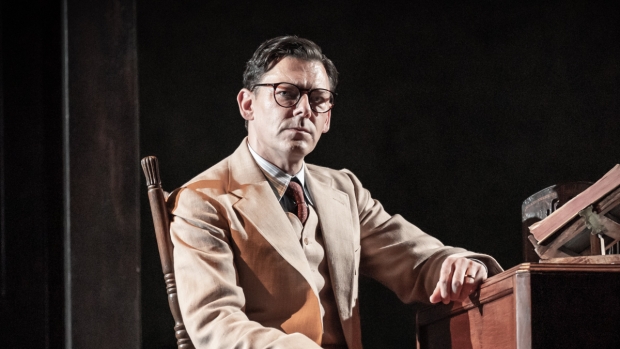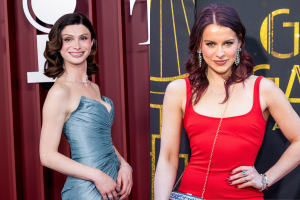Richard Coyle reflects on ”To Kill a Mockingbird”: ‘Theatre reconnects me with what it means to be an actor’

© Marc Brenner
Richard Coyle has been picking up some iconic roles – The Sun editor Larry Lamb in the James Graham smash-hit Ink, Aberforth Dumbledore in the most recent Fantastic Beast films and, currently, he’s been wowing in the West End production of To Kill a Mockingbird, playing the famous lawyer Atticus Finch. As he continues through his stint in the show, we hopped on the phone for a chat.
Coyle is returning to the stage for the first time in over four years. What’s changed? “I don’t think I’ve changed but this has been a lovely experience – this has been a role that I’ve cared about, I’ve always wanted to play and that’s meant a lot to me. In a way it’s been liberating – with Ink I was creating a stage ‘character’ – yes Lamb [editor of The Sun] was a real man but he’d never been on stage before. That brought its own kind of pressures. But here with Atticus, the pressure comes from the fact that lots of people have preconceptions of who this man is and what he represents. I’m still getting a lot of fulfilment doing it – yes there may be fraught moments but it’s always fraught getting up on a stage.”
Sheffield-born Coyle had a fascinating time rehearsing his way in – essentially coming into a show “beneath it” (as he describes) with most of his castmates having already inhabited their roles for months when the show first opened with Rafe Spall. “It was interesting – a new way of rehearsing that felt a bit like learning a track, a series of movements and choreography. There are certain blocking beats that are integral and have survived from Broadway through. So I had to learn those and work out how to justify those.
“Working with the understudy company for the first few weeks meant short and intense days, before Bart[lett Sher, the director] came over and we put it on its feet with the full cast. It was then that it became its own entity, a new entity, and then from there we moved into the Gielgud.”
Jumping into the themes of the novel (the story concerns the unjust trial of a Black man for the rape of a young white woman), I ask how it feels, starring in a show that resonates so far beyond the walls of the Gielgud theatre? It’s a tricky balance for Coyle: “Ultimately I have to play the story and honour the story, Atticus’ story. That’s my job. Atticus is a progressive man of his time, but he is still a man of his time. Interesting topicalities have to remain as that. But I have to not be alive to things, and not alive to the parallels that can exist. Anything else would be a different door to open.”
He adds: “A lot of current affairs really upsets me – the injustice of so much. It gets to me so fundamentally that it affects my equilibrium, I suppose. We’re facing so many overarchingly huge issues at the moment – massive societal things that, I have to admit, can be overwhelming. But I need to focus on what I need to focus on – so I just have to shut that door and tune it out.”
One recent foray into the world of film came when Coyle had quite a meaty role in the most recent Fantastic Beasts movie (I won’t spoil why) as a troubled Dumbledore brother – a role played by stage veteran Ciarán Hinds in the original Potter movies. I ask how it feels being, in effect, a younger Hinds: “It was wonderful, it meant a huge thing to me. I’ve loved those books for years, and it was sweeter playing an actual character from the books rather than a new prequel character. I’ve actually met Ciaran and he’s entirely my kind of actor – quiet, unfussy but always nails it. I love that. If I run into him again that’d be great. We’d be able to chew the fat over the role.”
To Kill a Mockingbird will continue beyond Coyle’s tenure, but the show has clearly left its mark on the actor. “Theatre makes me feel reconnected with what it means to be an actor, and the art of being an actor. This has been one of the great achievements of my career so far.
“The first night I went on was terrifying, but also liberating. Putting something you’ve rehearsed into the world in front of people who react, and feel, and fidget, it’s like a yacht’s sail being filled with wind. Now I’m out there, and I’m free.”












